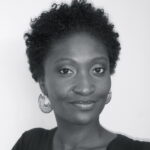It's been over a year since the police-involved shooting of Michael Brown in Ferguson. Since then, the topic of police shootings, racism, racial violence and privilege have been central points of discussion. The debate has brought out lots of strong feelings and opinions; it's a topic that impacts us personally—even when we don't think it does.
I've written before about how to raise confident, socially conscious children in light of the intense news coverage of police-involved deaths of black people. I suggested that maybe the answer lay in making a conscious effort to be of service to others and by being a good role model for the kids in my village.
But there was a crucial part of that answer that I forgot or wasn't aware of at the time. I was reminded of it recently while teaching young adults how to create their own podcasts.
RELATED: My Kid's Words After Charleston Stopped Me Cold
The part I forgot is this: When you're of service to others, you also get a lot back emotionally. You have a chance to become a better person yourself.
A few months ago, I was asked to lead a group of young adults in a training program. It's the result of a partnership between Message Media Education, the only Afro-Media Literacy training program in the nation, and Holman Church in Los Angeles. The goal was to teach a group of young people how to make a podcast, based on the topics they had been studying. This year the broad theme was on social justice and the Black Lives Matter movement. When I was approached to head the podcast training, I jumped at the opportunity. I've always wanted to teach, and I was looking for something that was both inspirational and part-time; it would be a way for me to ease my way back into work. This was the perfect opportunity.
After agreeing to lead the sessions, I spent the weeks that followed in a low level state of panic. I didn't feel ready to train anyone in the art of creating a podcast; I felt I'd been out of the game too long, and I'd spent so much time focusing on baby-related stuff that I was sure that I had forgotten how to do it. The stress was slowly making me crazy.
(The students) reminded me that even when these things happen, you really have to hold on to the light, or else you'll just stop.
Inevitably the time came for me to stand up in front of these young adult strangers. It didn't take me long to get back into the groove. I was very pleased to know that all of my knowledge was still relevant. I loved the fact that these young group of cell phone- and iPad-holding, funny, thoughtful individuals were actually interested in what I had to say.
What I hadn't expected was how their insights, thoughts and actions would move me. On the first day alone, this group of people—between 16 and 25 of age, all people of color mostly living in South Los Angeles, a lot of whom had seen police-involved violence with their own eyes—demonstrated more sensitivity and more empathy than most adults who claim they understand the issues.
This same group of young people, who cracked (hilarious) jokes about the Drake/Meek Mill beef, who had very little knowledge of the Black Lives Matter movement (because, they had other things to do. Think about it, how much news did YOU watch when you were that age?) and played what they called "old-school" songs from the '90s and quietly liked to see their "old-school" instructors jam to the songs, were the same people who wanted to know why police officers would continue to beat civilians who weren't fighting back.
They wanted to know why police officers would shoot unarmed civilians. These questions didn't come from nowhere. Students told me how they saw civilians being beaten, yet at the same time, their opinion of the police remained nuanced. They told me that they thought maybe a motivation behind these police beatings could be because of frustration; because maybe police officers had things going on in their lives that they couldn't control, and took it out on people on the job. One student likened it to a frustrated parent taking life out on their kids. They told me that maybe they hit civilians because they know they have the weight of the law and the system behind them.
I was blown away by the analysis. None of them thought what was happening was RIGHT, but they were still somehow about to acknowledge that these police officers had lives outside of work, had families and had to deal with family pressures, too. Their ability to humanize individuals who may have dehumanized people who live close to them or look like them or even themselves moved me greatly.
By the end of the first day, I was exhausted and exhilarated because by listening to them, I had realized how jaded I had become. I thought I was still keeping things light, but I had found that with every news story and every update about another young black adult who had been killed or brutalized while in police custody or during an exchange, this light was slowly being eroded. It was chipping away at me. So they reminded me that even when these things happen, you really have to hold on to the light, or else you'll just stop.
RELATED: This Is Being Black in America
And we can't afford to stop pushing back. Rather than solely focusing on fear and how to fight it, let's also focus on love and let it inspire us to support others when they need it.
In the end they did produce that podcast, and it came out really well. If you want to hear more of their insights, you can listen to them here.




